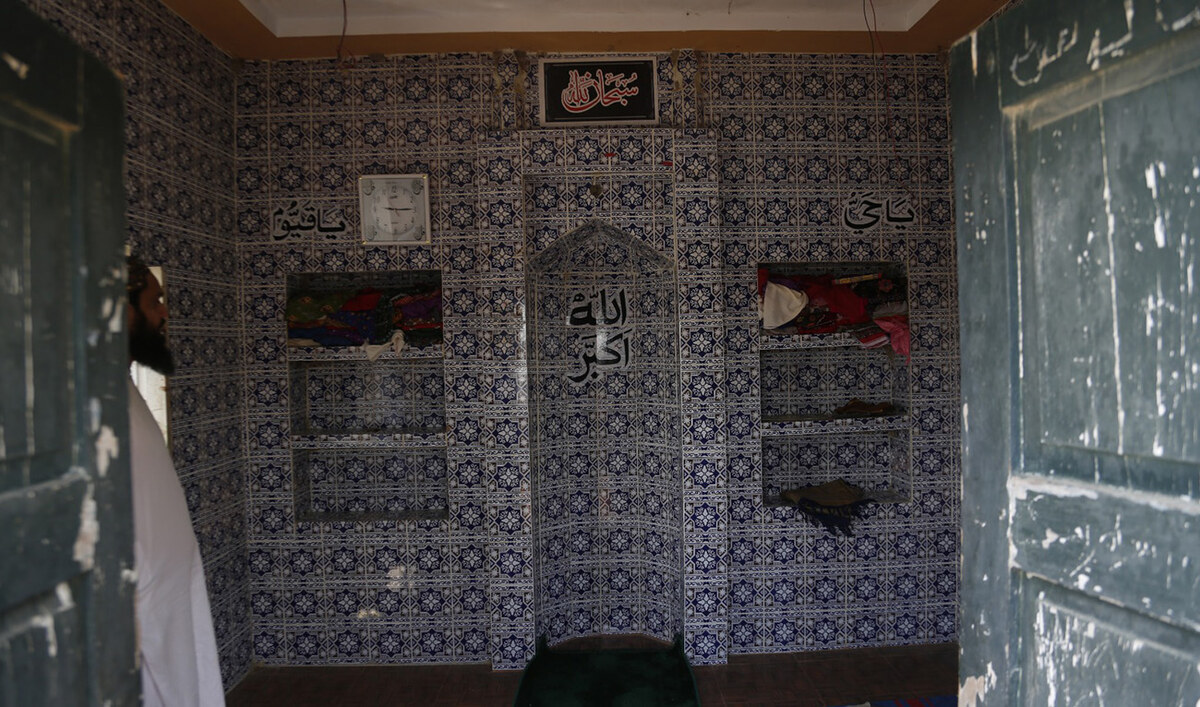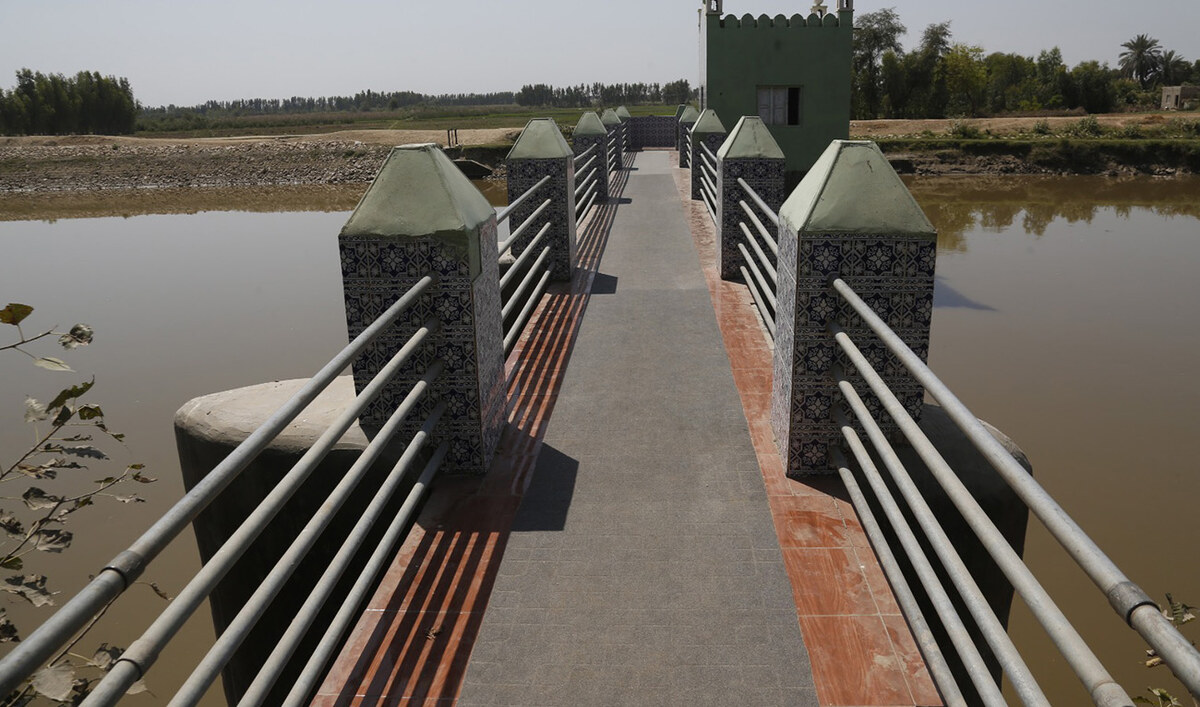SHIKARPUR, Sindh: Agha Sanaullah Khan, a 76-year-old arms dealer, sat last month in front of piles of books, with assault rifles, pistols and other ammunition and weapons’ accessories stacked up around them at his shop in the southern Pakistani city of Shikarpur.
Is this a bookstore or an arms dealership?
Welcome to Pathan Armory near Lakhi Dar, one of the seven gates of the historic Shikarpur city, where Khan has been selling weapons for over three decades.
But his true passion lies somewhere else: in writing short stories and travelogues.
The septuagenarian, who has authored four Sindhi language travelogues, and a collection of short stories called ‘Ghalti’, or ‘Mistake,’ says customers who visit his armory are often surprised when they find him pouring over books.
“They come and say, ‘Weapons and books both?’,” Khan said, as he counted change for a customer. “What can I do? Whenever I get free, I read. One should read. Not just reading, I also write here, sir. I sit here and write. This is my nature.”
“Weapons are my business, my livelihood, and I earn from it. I support myself with it,” he explained. “Books are my passion.”
“PASSION FOR TRAVEL”
Khan, whose father was a bureaucrat, set up his armory in the early 1990s in Shikarpur where he lives with his wife while his children are settled in the United states.
The city, which from the 17th to 19th centuries used to be a vital trade hub connecting Central Asia and the Indian Sub-continent, is now plagued by a major crime problem, with several dacoit gangs operating in riverine areas of the district.
Nasir Aftab, Deputy Inspector General of Police (DIGP) Larkana Range, told Arab News the security situation in Shikarpur had improved due to ongoing armed operations against dacoits.
“The operation has weakened the organized criminal network, leading to a drastic improvement in security in the region,” Aftab said. “Public confidence has been restored, and the dacoits are finding it difficult to regroup. With continued law enforcement efforts, lasting peace and security in Shikarpur, Kashmore, and surrounding areas is becoming a reality.”
But for Khan, weapons and pistols were “a necessity now.”
“The law-and-order situation here is such that people are forced to keep guns. And it is allowed by the government, I have the license.”
The arms dealer’s heart, however, lies in storytelling and his passion for travel writing is inspired by a love for tourism.
In his books, he has documented his journeys from the bustling streets of India and the serene landscapes of Nepal to the vibrant markets of Thailand and sprawling cities of the United States.
“When I was born, I had a passion for tourism. When I became wise, I thought I should travel,” he said. “I came into the [arms] business but touring remained stuck in my mind.”
The septuagenarian says his travels to India with friends, which he has written about in his first travelogue, were particularly impactful, as he was able to reconnect with migrants from Shikarpur and experience their hospitality and shared history.
“I met with someone who had migrated from here, Guman Punjabi from Shikarpur. He served me greatly. I met many other migrants and they treated me well,” Khan recalled.
His fascination with America, where his two sons and two daughters live, has led him to write two travelogues while a third one is in the works.
“You can say that I have traveled all over the country, New York, Washington and all major cities of Florida state,” he said, adding that he considered America his second home, but chose life in his hometown of Shikarpur over procuring an American nationality.
Khan, who wants to inculcate a love for reading and writing in others, recently donated nearly 4,000 books to a local library on a friend’s request.
He now wishes to leave behind a legacy that is rooted in his passion for words.
“At present, people know me as an arms dealer,” said Khan as he polished an assault rifle, “but I want that a time comes when people know me more as a travelogue writer.”






















